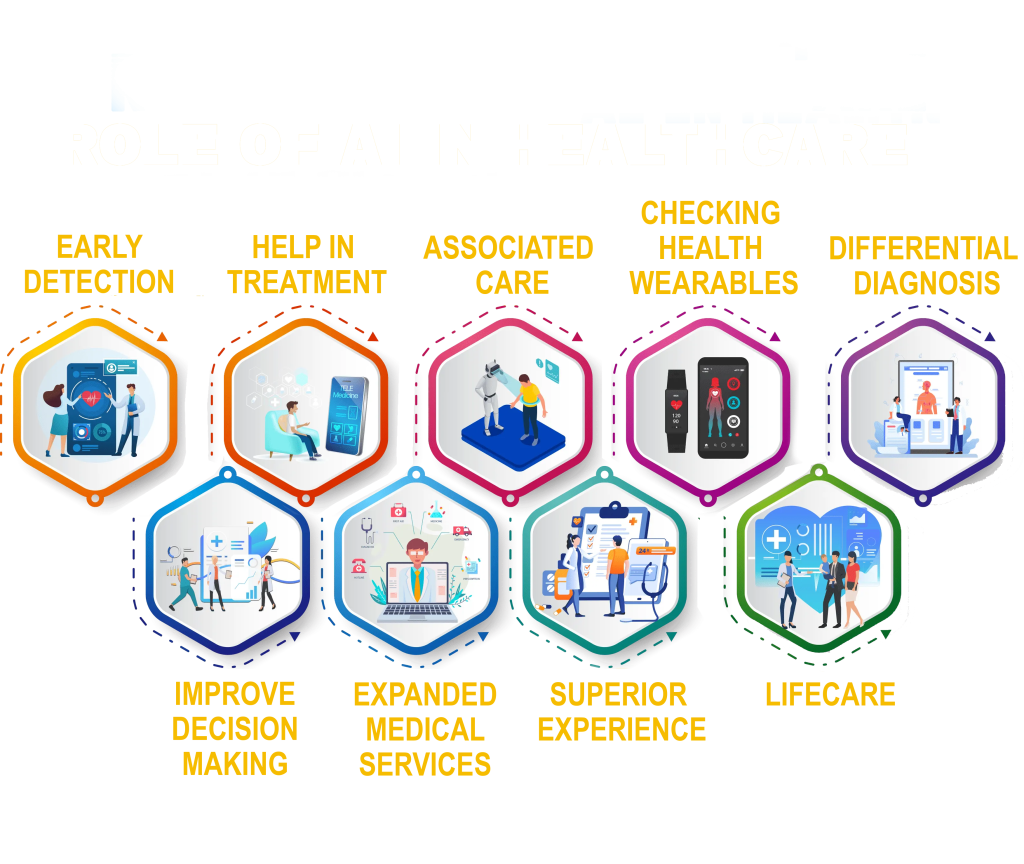How AI can help health/medicine/patients
Gratitude to the hybridization of artificial intelligence, the healthcare industry is on the cusp of a revolution. Due to the large population, providing quality healthcare to all citizens is a big challenge. However, AI has the potential to improve healthcare delivery by increasing accuracy and efficiency. Doctors handle a lot of patient data, which is very useful.
AI can help doctors.
- Analysis of patient data
- Recognize patterns and trends
- For accurate diagnosis
The differential diagnosis can help the clinician make an informed diagnosis by suggesting associated possible medical conditions with the same symptoms
Natural language processing ensures that minimal technology is required while helping physicians of all ages and demographics achieve excellent diagnoses. This will have a significant positive impact on patient outcomes and reduce mortality. This also improves the quality of care while saving time.
AI powered diagnostic tools can help doctors diagnose diseases like cancer earlier increasing the chances of successful treatment.
Ai algorithms analyze medical images such as X-rays, MRI and CT scans to identify symptoms of diseases that a human eye might miss.
Powerful data engines analyze genetic information to identify mutations that may contribute to disease pathways.
In drug discovery, where large amounts of data are
analyzed to identify new drug combinations that can be used to treat diseases.
Today, real-world evidence is gaining increasing acceptance requiring real-time
synthesis, analysis and interpretation of drug data to inform effects and usage patterns
Digital medicine is a new and emerging area where
evidence-based medical practices driven by high-quality software programs have the potential to prevent, manage, or cure medical problems This is especially important where disease management requires an integrated approach that
includes medical, behavioral and social factors.
AI can play an important role in improving healthcare around the world, where doctors are in short supply. To bridge this gap, AI-powered chatbots and virtual assistants can provide basic medical advice and support to patients. This feature can be especially useful in rural areas where healthcare is limited. Smart virtual assistants or intelligent assistants help to adopt an active and healthy lifestyle. AI-powered tools can help doctors better manage diabetes by analyzing patient data and personalized treatment plans. AI has shown encouraging results in the delivery of healthcare.

AI-powered diagnostic tools
- Skin cancer is diagnosed accurately.
- It helped in the diagnosis of eye diseases.
- To reduce the need for patients to visit specialist hospitals.
- Chatbots have provided mental health support to patients
Artificial intelligence plays a vital role in disease diagnosis by analyzing patient data and can identify patterns that may indicate the presence of a disease. But there are still some challenges to overcome, e.g.
- Ensure data confidentiality.
- Ethical concerns
- Ensure that AI-based research is supported by human knowledge
It can be said that AI has the potential to transform healthcare by increasing the accuracy and efficiency of healthcare delivery. AI In areas where physicians are in short supply and chronic diseases are highly prevalent, AI can play an important role in improving the delivery and affordability of healthcare Although there are barriers to implementing AI in healthcare about, such as data privacy and regulatory issues, the potential benefits are enormous. For further assistance, visit our channel and refer the video named How can AI help in healthcare | @turilytix or click the link.



It’s a very good topic for healthcare domain. AI with robotics can help doctors for surgery with great accuracy. We are expecting another topic on it.
Sure. We will comeup with that
Great topic, how AI is going to help health care to save human lives is described in simple manner
Thank you